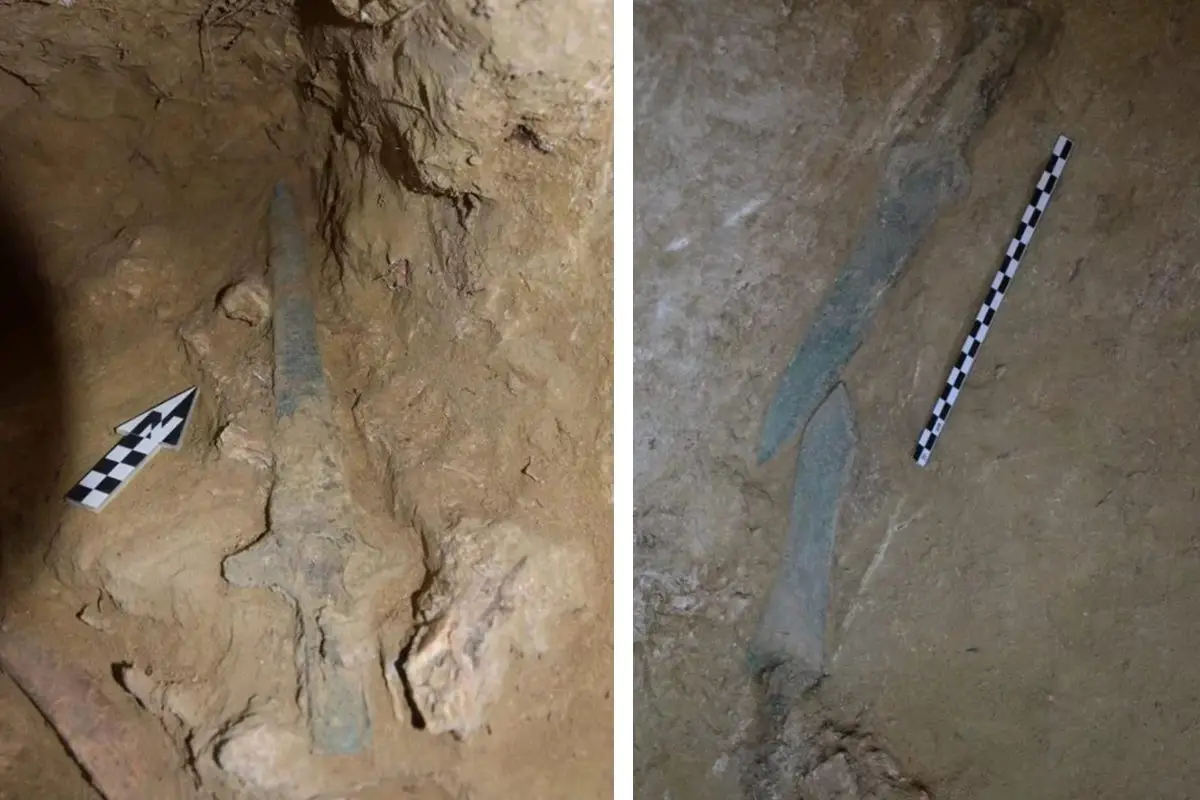Archaeologists have uncovered three bronze swords from the Mycenaean civilisation during excavations of a 12th to 11th century BC tomb, discovered on the Trapeza plateau in the Peloponnese.
The Mycenaean civilisation was the last phase of the Bronze Age in Ancient Greece, spanning the period from approximately 1750 to 1050 BC. The period represents the first advanced and distinctively Greek civilisation in mainland Greece, notably for its palatial states, urban organisation, works of art and writing system.
The tomb was found in a Mycenaean necropolis located in the ancient settlement of Rypes, where numerous chambered tombs were carved into the sandy subsoil during the “first palace” period of the Mycenaean era.
Archaeological evidence suggests that the tombs were repeatedly reopened for burial customs and complex ritual practices until the end of the Bronze Age during the 11th century BC. Excavations of the necropolis have revealed numerous vases, necklaces, golden wreaths, seal stones, beads, and pieces of glass, faience, gold, and rock crystal.
In the latest excavation, the researchers have been exploring a rectangular shaped tomb that contains three 12th century BC burials adorned with false-mouth amphorae.
Among the remains are offerings of glass beads, cornaline and a clay horse figurine, in addition to three bronze swords with part of their wooden handles still preserved.
All three swords belong to different type-set classifications, being D and E of the “Sandars typology”, which date to the Mycenaean palace period. In the typology, D type swords are typically described as “cross” swords, while class E are described as “T-hilt” swords.
Excavations have also found part of the settlement in the vicinity of the tombs, revealing part of a high-status building with a rectangular room containing a hearth in the centre.
Header Image Credit : Greek Ministry of Culture





